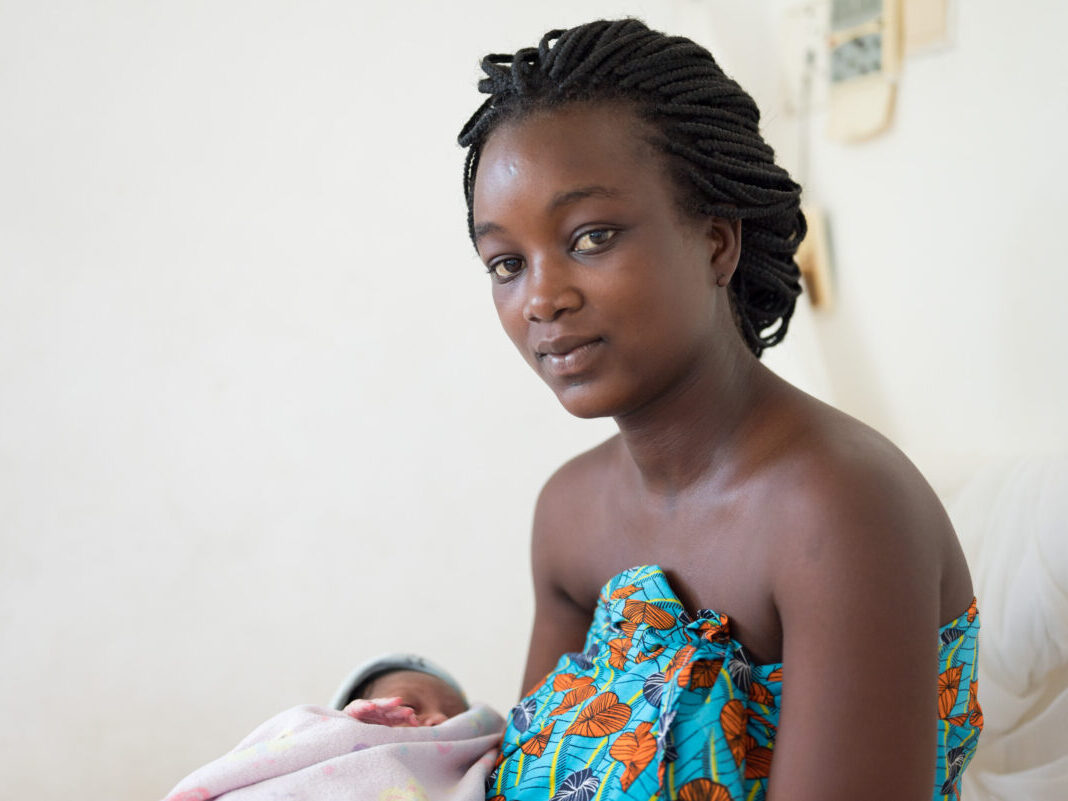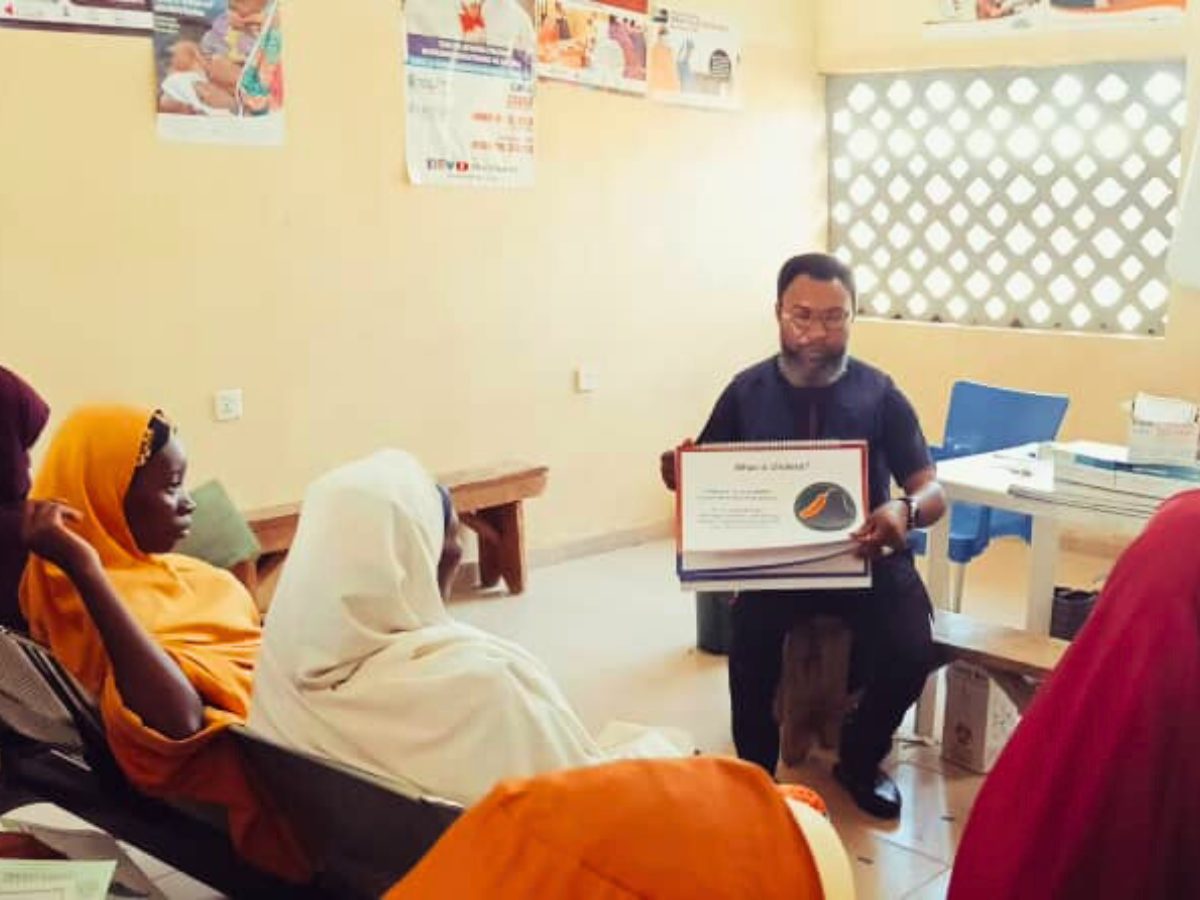Domonique Reed, MPH, a doctoral student in the ICAP Global HIV Implementation Science Research Training Fellowship, was awarded a grant last month from the United States National Institute of Mental Health (NIMH), part of the National Institutes of Health (NIH). Reed, a fourth-year doctoral student at Columbia Mailman School of Public Health, will use the award to help support her dissertation work. She plans to use large data sets to examine “the role of community and societal determinants of HIV” among adolescent girls and young women in sub-Saharan Africa.
“It definitely showed initiative on her part, and commitment to a career as an investigator,” said Andrea Howard, MD, MS, who heads ICAP’s Clinical and Training Unit as well as the Fellowship program. “One of the significant things about having your own dissertation award, it puts you on the path to being an independent investigator and to being funded by the NIH.”
Reed is one of five pre-doctoral students from Columbia’s Mailman School of Public Health who are currently enrolled in the Fellowship. ICAP established the T32 Fellowship program nine years ago through support from the NIH’s National Institute of Allergy and Infectious Diseases. The Fellowship prepares pre- and postdoctoral individuals for careers as independently funded researchers and leaders in global HIV implementation science, a field of study that focuses on closing the gap between evidence-based practices and the way they are actually implemented on the ground.
Reed’s dissertation will focus on leveraging big data to assess structural drivers of HIV infection in adolescent girls and young women across five countries in sub-Saharan Africa: Cameroon, Eswatini, Malawi, Rwanda, and Uganda. She will create a large, multi-level public health dataset—including data from the HIV-focused surveys ICAP has implemented, the Population-based HIV Impact Assessment (PHIA) project—that draws from data at the individual, household, subnational, and national levels, and then use it to determine the causal relationship between HIV interventions, policies, and laws, and HIV rates among adolescent girls and young women. The award will support her work for another 18 months.
Adolescent girls and young women ages 15 to 24 years old make up 10 percent of the population worldwide but account for 25 percent of all HIV infections globally. Moreover, girls and young women account for 83 percent of new HIV infections among all adolescents and young adults in sub-Saharan Africa. This disproportionate burden has stubbornly withstood numerous targeted interventions, which is why Reed hopes her work will help to pinpoint approaches that go beyond the individual behaviors of the women and girls themselves, and take into account “interpersonal, societal, and community factors” that can have a huge impact on the efficacy of more traditional HIV interventions and inform the creation of new ones.
For example, Reed pointed to the fact that some countries in the region still allow marriages between girl children and adult men.
“It was genuinely bothering me that there are child bride laws, but they are deeply ingrained in society, making them hard to change,” she said. “Standard HIV programs will distribute condoms but they won’t change the laws. Condoms work, but those programs don’t often consider prevailing gender and social norms that can influence power dynamics within relationships, and that may make it difficult for adolescent girls and young women to negotiate safer sex. I wanted to create a project that allowed me to at least provide the evidence that these policies and programs are falling short, or not comprehensive enough.”
She described the grant application process as difficult, but doable thanks to the support she received from the ICAP Fellowship team.
“Most people with PhDs are pretty well-versed with the grant process, but I was so green about everything,” she said. “But I got a ton of support from [the Fellowship program], I got a ton of support from the epidemiology department, and then of course my mentorship team,” which includes ICAP Senior Technical Director Jessica Justman, MD.
“Domonique’s research questions are driven by a passion to understand health disparities and a desire to promote health by changing the underlying processes that foster such disparities,” Justman said. “Her research training and experiences, her understanding of theory, her perspective as a minority scholar and now her success in securing this award will all help her to make important contributions as an expert in the HIV field.”
Reed said she was particularly interested in applying for the grant because of its focus on diverse applicants.
“As a Black woman, it was really important to me to apply for this dissertation grant,” she explained. “I don’t think I ever realized how important it was until recently, when I realized there are very few other PhD students and professors who have had a similarly lived experience and who look like me. I especially felt that deficit when trying to make decisions about my education and career.”
Looking towards the future, she said she plans to pursue post-doctorate training and a long-term career in academia. At the same time, she hopes to encourage and help develop diversity initiatives in the world of public health and academia.
“The dream would be to start a pipeline program in whatever city I’m living in, from high school to PhD, because I didn’t really have examples of that growing up and I think you have to start really early,” she said.
About ICAP
A major global health organization that has been improving public health in countries around the world for two decades, ICAP works to transform the health of populations through innovation, science, and global collaboration. Based at Columbia Mailman School of Public Health, ICAP has projects in more than 40 countries, working side-by-side with ministries of health and local governmental, non-governmental, academic, and community partners to confront some of the world’s greatest health challenges. Through evidence-informed programs, meaningful research, tailored technical assistance, effective training and education programs, and rigorous surveillance to measure and evaluate the impact of public health interventions, ICAP aims to realize a global vision of healthy people, empowered communities, and thriving societies. Online at icap.columbia.edu







